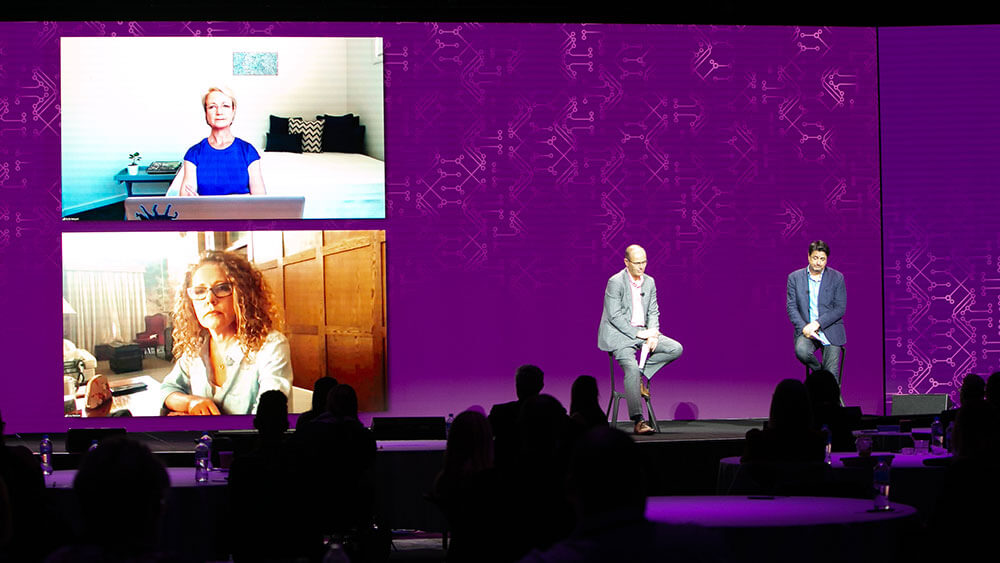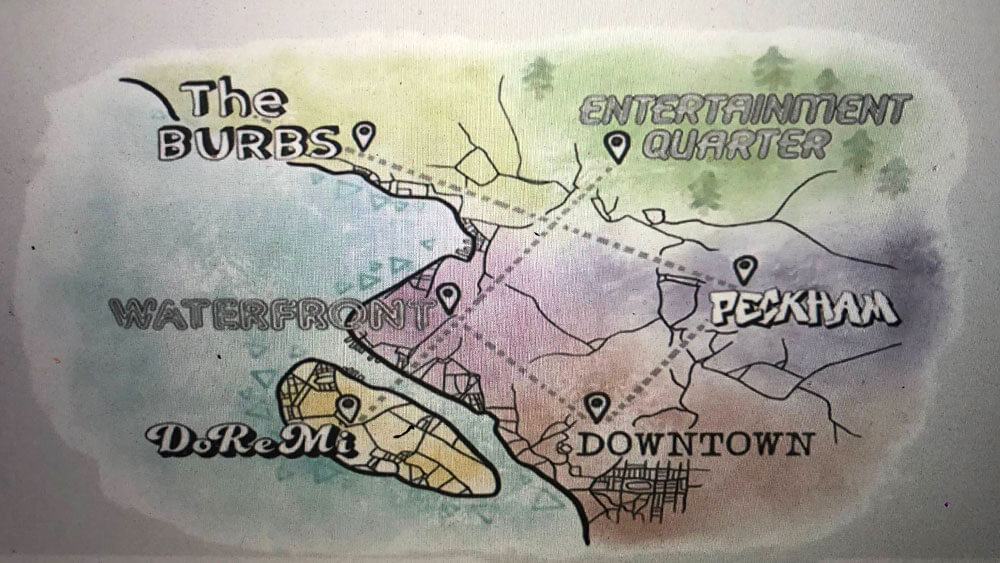
MICE professionals in Sydney and around the world listen to in-person and remote speakers during PCMA’s recent hybrid event, Convening Asia Pacific: The Global Recovery Forum. Hybrid meetings have the potential to combine scale and serendipity, said futurist Mark Pesce.
Author, technologist, and futurist Mark Pesce, who is based in Sydney, Australia, has logged many hours at conferences as both a keynote speaker and attendee. When Convene spoke with Pesce about how he looks at the future of events, he talked about the distance between scale and serendipity.

Mark Pesce
The pandemic has given event producers a lesson in technology’s ability to deliver scale in the digital space, Pesce said, as conferences have blossomed from hosting several hundred to thousands and tens of thousands of participants. What is harder for digital meetings to deliver are serendipitous connections between like-minded people, which fuels creativity.
“What I feel we’re learning now — because the pandemic has forced us to learn it — is that some things are well-suited to Zoom-based interaction. Other things are better suited to have face-to-face interaction.
“My favorite conferences,” Pesce added, “have always been, not conferences with thousands of people, but conferences generally at less than a hundred people, because you can know people, you can form friendships. You can have a journey together at that scale, which you can’t do at a big conference with tens of thousands of people.”
In large digital meetings, “you can have scale, but you won’t have serendipity,” he said. Smaller in-person meetings can deliver serendipity but not scale. With the digital tools on hand, “I don’t think you can get both at the same time,” he said. There’s potential, Pesce said, for hybrid meetings to combine the two. When it comes to scale and serendipity, he added, “there’s not just two settings on that dial — there’s a whole range of them. How you set them will depend on what you’re trying to achieve.”
Barbara Palmer is deputy editor of Convene.
RELATED
You Don’t Want 200 Eyeballs Watching You Say Hello
Many in the event industry have been struggling with how to deliver personal experiences to participants via online platforms. In March, as part of Georgia Tech’s Create-X Startup Launch program, a group of students created what they hope will serve as a solution: a new platform called Gatherly.

